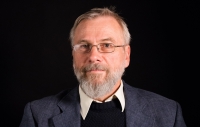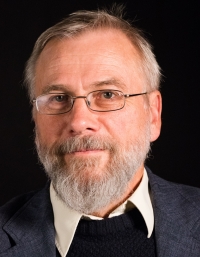Today I´m in danger of losing time, not of being arrested. But one has to be involved all the time
Jan Payne was born on the 7th of June 1953 and he grew up with his parents, a grandmother and two brothers in Vinohrady. He attended an experimental swimming school and he later studied at a grammar school. He spent the time of Warsaw Pact troops invasion of Czechoslovakia in England at an international camp. Although Jan´s family considered emigration, they stayed in Czechoslovakia even after it. He passed the leaving state exams and started to study Medicine. He met a philosopher and a dissident Ladislav Hejdánek and attended his seminars. He was in an interrogation room of State Security because of this acquaintance. He continued to attend many flat lectures and went to so called “Libštáty” - meetings of clergymen and laymen of Evangelical Church of Czech Brethren. He attended the funeral of Jan Patočka, a philosopher and a spokesman of Charter 77, in spring 1977 and because of it he was at risk of being expelled from school. After finishing his studies, he started to work in Motol University Hospital in The Department of Neurology. Then he worked in Academy of Sciences and in a health centre in Dejvice. He got in touch with members of Solidarity during his stay in Poland in 1981. He signed Charter 77 declaration at the end of 1980s, and he took part in anti-government demonstrations in 1988 and 1989. He was detained for 48 hours after one of them. On the 18th of November 1989 he recorded Drahomíra Dražská´s statement about an alleged death of a student in Národní třída and he gave the tape to Uhlovi, the married couple who spread the message. During the following days, he tried, together with students of Medicine, to look for possible victims of the intervention in Národní třída. He got shortly involved in Civic Forum and after 1990, he was an Adviser to the Minister of Health Martin Bojar for some time. At the time of the interview, he was working at First Faculty of Medicine of Charles University in Prague.

